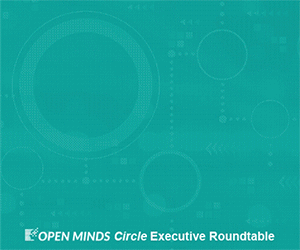Autism & I/DD
Intellectual and developmental disabilities (I/DD) are a physical and/or cognitive impairments that occur before the age of 22. Autism spectrum disorder is generally considered a type of developmental disability that affects behaviour and communication. The autism and I/DD market provides supports and health care services to these populations. Over the past decade, there has been an increase in the changes and challenges affecting I/DD and autism markets—the move to managed care and value-based care, the shift away from residential treatment, the increasing emphasis on consumer-directed care, and new workforce challenges.
Editor’s Picks
Latest Resources
- Youth With Autism, Intellectual Disability, Or Cerebral Palsy Experienced Higher Mortality From A Range Of Causes Than The General Youth Population
- North Dakota Draft 1915(c) Home- & Community-Based Waiver
- Cooper University Health Care Launches Mobile Primary Care Unit For People With I/DD In New Jersey
- Updates To Community Connector Rate, Policy & Limits In the Children’s Extensive Supports (CES) & Children’s Habilitative Residential Program (CHRP) Waivers
- Behavioral Health Network Opens New Autism Support Centers In Springfield & Fall River, Massachusetts
- 90% Of Chilean Children With Autism Have Medical Comorbidities
- The Telehealth Factor: Most Popular OPEN MINDS Program Profiles Of 2025
- Ethical AI In Behavioral Health: Practical Use Cases That Work
- Private Equity Firms Acquired More Than 500 Autism Centers Between 2015 & 2024
- Multiple Vail Resorts Mountain Communities Receive Combined $3.2 Million Investment For Mental Health & Substance Use Service
- Turnover & Staffing Remain Key Concerns For I/DD Direct Support Professional Workforce
- Whose Evidence For Autism?
- Aetna Expands Mental Health Leadership With Dedicated Neurodiversity Support Program
- Canadian Childhood, Youth Autism Prevalence Reaches 2.25% In 2024
- Shasta Family YMCA Opens Shasta STRIDE Daily Program For Adults With Developmental Disabilities In Redding, California

- AI Autism Diagnostic Software Tool Shortened Time To Diagnosis To 39 Days
- Bristol-Myers Squibb Targets Autism Irritability With New Phase 3 Drug Trial
- IDD Navigator Platform Supports More Than 10,000 Users Since Launch
- ECM For Autism By Easterseals Southern California: An OPEN MINDS Program Profile
- Young Adults With Autism At Higher Risk Of Cardiometabolic Conditions
To sign-up for monthly Autism & I/DD Services alerts, you must be signed in to your account.
Government Contract Award Announcements
- Alaska Awards Emergency Medical Services System Evaluation Contract To The Paramedic Foundation
- Texas Awards Inpatient Competency Restoration Program Services Contract To Perimeter Behavioral Hospital Of Garland, LLC dba Perimeter Behavioral Hospital Of Dallas
- New Jersey’s Union County Awards Family Clinic Medical Director Services Contract To Union County Healthcare Associates, LLC
- Hawaii Awards Child Visiting & Family Resource Center Services Contract To Keiki ‘O Ka’Aina Preschool, Inc.
- North Dakota Awards Two Addiction Treatment Services For The East Central District Treatment Court Contracts
 Private Equity Firms Acquired More Than 500 Autism Centers Between 2015 & 2024
Private Equity Firms Acquired More Than 500 Autism Centers Between 2015 & 2024
 Canadian Childhood, Youth Autism Prevalence Reaches 2.25% In 2024
Canadian Childhood, Youth Autism Prevalence Reaches 2.25% In 2024
 AI Autism Diagnostic Software Tool Shortened Time To Diagnosis To 39 Days
AI Autism Diagnostic Software Tool Shortened Time To Diagnosis To 39 Days
 Young Adults With Autism At Higher Risk Of Cardiometabolic Conditions
Young Adults With Autism At Higher Risk Of Cardiometabolic Conditions
